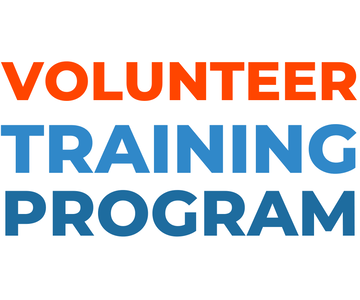
Motivational Interviewing Counseling Example: Strategies and Techniques
Motivational Interviewing Counseling Example: Strategies and Techniques
“People achieve the goals they are motivated to achieve. In many situations, people are not motivated to achieve the goals we create for them. When this happens, we call them non-compliant, but maybe the problem lies with us? Could it be the result of not taking into account a basic understanding of human nature…people will achieve the goals they are motivated to achieve.” Gary Gardia on motivational interviewing as a counseling technique.
Transitional Summary
Transition into the conversation about this topic or this particular goal by providing a summary of where this person is up to this point.
Ask Evocative Questions or Leading Statements
Ask open questions that will likely lead to conversations about goals.
Ask open questions that will likely lead to conversations about goals.
- “What kinds of things are most important to you these days?”
- “I can see you have been thinking a lot about your family and their needs.”
- “The relationship with your daughter seems strained or is that my imagination?”
- “It appears you want to do what is best for your husband Bob. I am wondering if you know what Bob wants for you right now?”
Explore Decisional Balance
Ask for the pros and cons (positives/negatives) of specific goals, especially those that feel frightening or where there is apprehension.
Ask for Elaboration/Examples
When a potential goal emerges, ask for more details.
Ask for the pros and cons (positives/negatives) of specific goals, especially those that feel frightening or where there is apprehension.
- “You said you would like a feeding tube in any situation if you were unable to eat. Certainly, the thought of not getting nourishment can be frightening. Can you think of a situation where it might be best to stop that type of feeding?”
- “Let’s talk a moment to look at this from both sides…”
Ask for Elaboration/Examples
When a potential goal emerges, ask for more details.
- “What might that look like for you?”
- “Can you give me an example of how you might go about that?”
- “You said you would like it if you could speak with your daughter about this. Can you tell me more about that?’
Look Back
Ask about times before this goal.
Ask about times before this goal.
- “Was there a time in the past when you experienced something like this and what happened then?” “What did you do at that time and was it successful?”
- “How were things different/better/worse?”
Look Forward
Ask about what may happen if things stay the way they are.
Query Extremes (Troubleshooting)
Use Change Rulers "On a scale from 1–10 (1…not important and 10…very important) how important is it that you achieve this goal?
Explore Goals and Values
Ask about the person’s values that guide the setting and achievement of this goal.
Ask about what may happen if things stay the way they are.
- “If you are 100% successful in speaking with your husband about this, how will things be different?” (The miracle question)
- How will it look?
- What will you be doing?
- What will be happening?
- How will you be feeling?
Query Extremes (Troubleshooting)
- Ask about the worst/best things that could happen?
- “If the worst occurs, what will you do then?” Utilize role-playing (for example) to rehearse possibilities and assist people to explore options if “the worst” or problems arise.
Use Change Rulers "On a scale from 1–10 (1…not important and 10…very important) how important is it that you achieve this goal?
- “How confident are you?”
- “How likely is it that you will succeed?”
- “How likely is it that this will occur?”
Explore Goals and Values
Ask about the person’s values that guide the setting and achievement of this goal.
- “Most of us make choices based on certain values. What would you say are your top two or three values or guiding principles?”
- “How might these values guide you in making this decision?”
- “What goals would you like to create for this situation based on these values?”
Come Alongside
Side with the negative in order to explore motivation.
Content for this blog post is part of a webinar handout designed by Gary Gardia and adapted from Motivational Interviewing Strategies and Techniques. To learn about motivational interviewing, social work leadership, and counseling techniques check out the on-demand webinar covering Social Work Leadership in Addressing Complex Situations.
Side with the negative in order to explore motivation.
- “Perhaps speaking with your husband is less important than keeping things ‘safe’ or the way they are right now?”
- “Sometimes it feels like not resolving this situation is preferable for you.”
- “I can see that if you do not confront your husband, you will not have to risk his response.”
Content for this blog post is part of a webinar handout designed by Gary Gardia and adapted from Motivational Interviewing Strategies and Techniques. To learn about motivational interviewing, social work leadership, and counseling techniques check out the on-demand webinar covering Social Work Leadership in Addressing Complex Situations.
Read These Articles Next
December 7, 2021
July 9, 2021
Tess Bower
April 17, 2023
© 2026 FINANCIAL EDUCATION & DEVELOPMENT, INC





